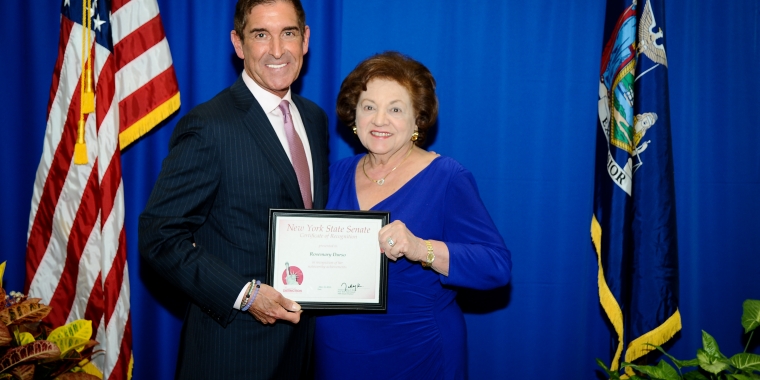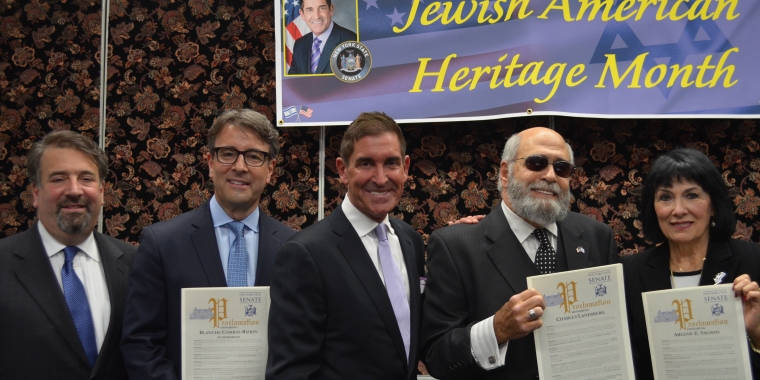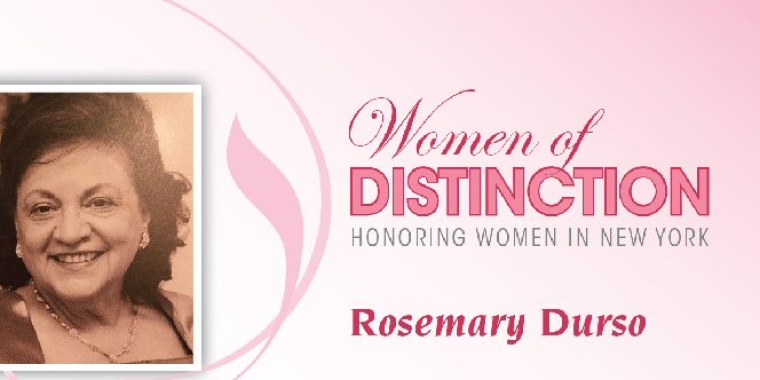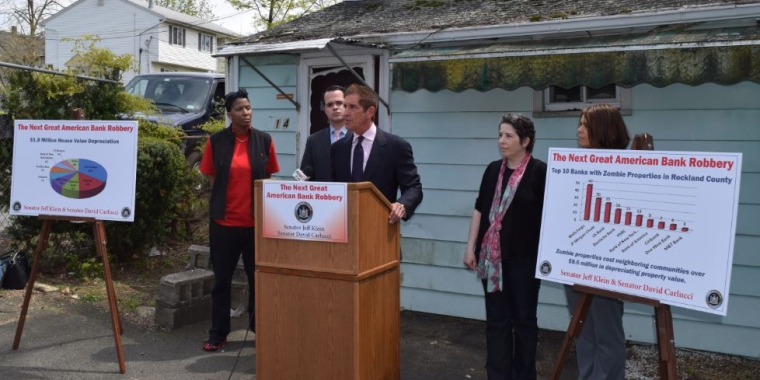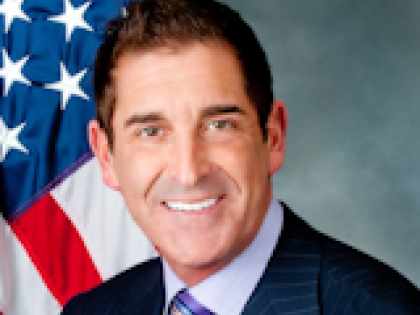
Klein And Senate Dems Unveil Updated Analysis Of Sub-prime Mortgage Crisis
Jeffrey D. Klein
August 26, 2007
State as a whole is on pace in 2007 to exceed the number of mortgage foreclosure filings in 2006 by a staggering 60%.
Manhattan with 58 foreclosures.
County with 254 foreclosure filings.
Klein’s report also takes a closer look at the top ten lenders in foreclosure filings. For the metro area, the top 3 foreclosing banks Deutsche Bank (2,299), Wells Fargo (1,791) and U.S. Bank, N.A. (1711) combined for 5,801 foreclosure filings in the past 13 months, or 29.4% of the total. The top 10 foreclosing banks accounted for 54.9% of the metro area foreclosures with 10,832 foreclosure filings in the study period. Foreclosure data only records the owner of the loan at the time of its default, so these lenders may not be the originators of the loans, but rather may have purchased them from other lenders.
State, have enacted laws against certain specific procedures identified as “predatory.” The immorality and viciousness of predatory lending practices is apparent when less educated, elderly, low-income, or minority homebuyers and homeowners are targeted. Efforts to capitalize on the trust of unsuspecting individuals as well as attempts to use blatant deception to close loans that result in a loss of equity or in foreclosure are abusive behaviors that must be eradicated by legislative regulations and consumer education,” said Senator Eric Adams (D-Brooklyn).
Senator Klein and the Senate Democratic Conference have proposed a variety of legislative measure to curb mortgage lending abuses, particularly in higher cost sub-prime lending where borrowers tend to have lower credit scores and fewer financing options, so lending terms are less favorable to them and hidden costs are commonly encountered. The rise of riskier new lending products, with adjustable interest rates, no money down, balloon payments and even longer lending terms have made mortgage financing available to more individuals than ever before, often without any serious scrutiny of their ability to repay the loan.
“Groups like NHS of Bedford Stuyvesant, PACC, and Bedford Stuyvesant Restoration, among others are helping my constituents refinance their loans, obtain legal representation, and save their homes from foreclosure,” said Senator Montgomery (D-Brooklyn) who represents Bedford Stuyvesant and other communities in north and central Brooklyn., noting that the rate of foreclosure notices in Bedford Stuyvesant has ranked the highest in New York City since 2002.
In April, Senator Klein introduced S 5310 directing the State Mortgage Authority (SONYMA) to offer a program to help low and middle-income families prevent foreclosure by refinancing existing sub-prime loans with a fairer, non-predatory home mortgages. While that measure has not yet passed, SONYMA announced a new $100 million initiative in July to offer refinancing for at-risk homeowners currently stuck in sub-prime mortgages. Senator Klein has also introduced S6394, the “New York Sub-Prime Predatory Lending Prevention Act.” The measure would include additional consumer protections on sub-prime home mortgage loans, including a prohibition on loan flipping when there is no tangible benefit to the buyer and a requirement that the lender verify the borrower’s ability to repay the loan.
“There is nothing more rudimentary to our society than an individual being able to own his or her own home. The lending practices of the past number of years have begun to shake the very confidence out of the mortgage industry that made it possible for homeownership for many people. It is incumbent upon us in government to rebuild this confidence and to ensure that individuals can go through this process without fear of being taken advantage of. We have to protect those who have already been preyed upon,
and put safeguards to protect any chances of having this occur again,” said Senator John Sampson (D-Brooklyn).
Senator Sampson has introduced S. 5936 which would establish an urban homeowners’ assistance program to assist first time, low or moderate income, or minority homeowners avoid foreclosure by sponsoring mortgage assistance programs by local neighborhood preservation companies.
